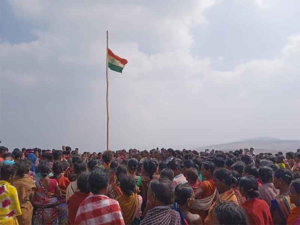While answering a question from MP Suresh Danorka about the determinants and distribution of farmers’ suicides, agriculture minister Narendra Singh Tomar did not recognise the extensive study done by the Punjab Agricultural University, Ludhiana (PAU), sponsored by the government of Punjab.
The PAU study strongly contradicts the data recorded by the National Crime Record Bureau (NCRB), which the agriculture minister cited to the Lok Sabha in response to Danorka’s question in July this year.
Further, on August 1, Bharatiya Janata Party (BJP) MP Nishikant Dubey made the bogus claim that “no farmer has died by suicide” in the last eight years under the Modi regime.
The bone of contention in discussions concerning farmer suicides should be around the methodology of the data collected by the NCRB and other government agencies, and the Congress MP’s question ought to be taken seriously.
Danorkar asked “whether the Government is aware of the fact that 9,291 farmers committed suicides between 2000 and 2018 in six districts of Punjab, according to PAU study”. Responding to this question, Tomar cited the NCRB report, which recorded only 1,805 farmer suicides in the whole state.
The agriculture minister’s refusal to acknowledge the Punjab government-sponsored study suggests that he is not free from politically-driven mollified intention.
The research team behind the PAU study had a detailed questionnaire, intensively noting every possible detail of the suicide victim’s family. Village Sarpanchs played a significant role in data collection and cases were verified at multiple levels.
The discrepancies between the number of farmer suicides according to the NCRB and the number detailed in the PAU study are as under:

The discrepancy highlighted in the above table indicates the shallowness of the methodology employed by the NCRB.
However, it should be noted that even the PAU data does not provide a perfect picture of farmers’ suicide in Punjab. The PAU study covered only 2,400 villages of only six districts of Punjab, while as per the 2011 Census, there are 12,581 inhabited villages in the state.
It is also worth mentioning that PAU has undertaken a separate study for agricultural labourer suicides, which shows 7,303 labourers died by suicide in the same 2,400 villages considered in the above-mentioned study.
The total figure of 16,594 farmer suicides in six districts of Punjab explains the magnitude of the agrarian crisis and the feeling of alienation among agrarian communities in the state.
Besides the six districts considered by PAU in their studies, there are many other districts where the intensity of the agrarian crisis is high. There is an urgent need for engagement in order to facilitate assessment and remedies, which are found severely wanting. Districts like Muktsar, Faridkot, Ferozepur, Fazilka, and Patiala are highly vulnerable in terms of farm debt and agrarian crises.
The NCRB’s methodology for data collection has a limited scope for several reasons. The foremost concern with the NCRB methodology is that it collects data only from police records – since socio-cultural factors do not create an environment suitable for the victim’s family to go through the process of registering a first information report (FIR) after a death by suicide, it remains unreported in the NCRB data.
Having an improper definition of ‘farmers’ is another problem that the NCRB doesn’t properly address. While the NCRB did take a positive step in keeping a separate database for agricultural labourers distinct from that of farmers, this affected the mathematics of suicide mortality rates (SMR) as the number of suicides has been almost equally divided among ‘cultivator’ and ‘agricultural labourers.’
Further, deaths by suicide of women in the agrarian sector are not considered to be ‘farmer suicides’ since women aren’t considered to be farmers in the NCRB data; and this done not just by the NCRB, but by the Union government as well.
In our ‘Krishi Pradhan Desh’ (agricultural-dominated country), the ‘izzat’ (prestige) of any government and ruling party is associated with ‘Kisaan Kalyan’ (farmers’ welfare) – the actual data may perhaps affect the image of the ruling party.
Consider how the film Peepli Live depicts attempts by government functionaries to cover up one farmer suicide that garnered media attention; without ever addressing the agrarian crisis which led forced the farmer to commit suicide in the first place.
The scope of this paper is not just limited to discussions about the facts and figures of farmer suicides. Even if one farmer commits suicide, society should be worried and concerned.
As author and columnist P. Sainath said, “The issue of farmers’ suicide is not an economic issue. It is an issue of civilization. What kind of society are we shaping; where one who feeds us is forced to die?”
The PAU study gives us a more accurate picture of which agricultural policies should be framed while the NCRB data on farmers’ suicides shrouds the real magnitude of this crisis. If a pan-India level study is carried out in the manner that the PAU has done in the six districts of Punjab, it may present some shocking findings, but will also provide a base upon which further plans of action can be undertaken.
Treating a problem without knowing the actual pathology is harmful, and that is what the government, through its functionaries, is actually executing.
(Harinder Happy and Shivam Mogha are PhD scholars at Jawaharlal Nehru University, New Delhi. Courtesy: The Wire.)




